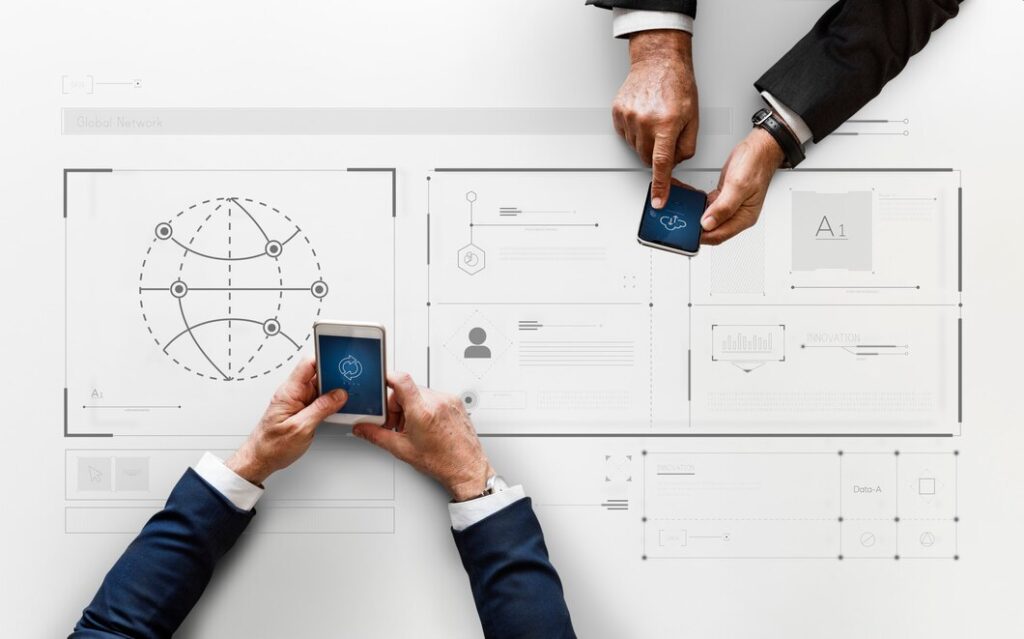Exclusive Neuroject Article: The Internet of Things (IoT) stands as a pivotal transformation in modern technology, unveiling an intricate network where devices communicate, collaborate, and share data, altering the very fabric of our technological interaction. This expansive interconnection intertwines smart devices, sensors, and everyday objects into a seamless tapestry, fundamentally redefining our daily experiences.
The essence of IoT extends far beyond mere convenience; it’s a catalyst propelling industries toward extraordinary insights, efficiency, and innovation. Companies that embrace IoT technology gain a distinctive edge, leveraging its capabilities to optimize operational efficiency, deploy predictive analytics, and craft personalized user experiences. The transformative potential that IoT companies bring is vast: from smart homes that streamline and adapt to daily routines to industries optimizing complex processes, IoT revolutionizes the very essence of productivity, sustainability, and interconnectedness.
The landscape of IoT technology continuously reshapes how businesses operate and individuals engage with the evolving digital world. It’s a profound evolution, one that redefines the operational landscape for businesses of all scales and alters how people interact within an increasingly dynamic and interconnected digital realm. This evolution isn’t just about connecting devices; it’s a metamorphosis that permeates industries, lifestyles, and the very fabric of modern society, promising a future shaped by boundless possibilities and enhanced connectivity. In this article, we review the 13 top IoT companies in the world, analyzing their features and characteristics.
Table of Contents
What is IoT?
The essence of IoT lies in its ability to facilitate seamless communication between devices, creating a web of interconnectedness that enhances efficiency, productivity, and convenience. By harnessing data generated by these devices, businesses gain invaluable insights, leading to informed decision-making and innovative services.
The IoT landscape continues to expand, driven by advancements in technology like 5G networks, edge computing, and artificial intelligence. This expansion fosters a dynamic ecosystem where companies continually push boundaries to develop cutting-edge solutions.
Suggested article to read: What is IoT? Internet of Things Definition and Meaning
In this context, recognizing the top IoT companies becomes crucial. These companies not only innovate but also influence the direction of IoT development. Their contributions span various sectors, from healthcare and manufacturing to smart cities and agriculture.
Exploring the top players in the IoT arena offers insights into groundbreaking technologies, strategic partnerships, and pioneering initiatives that drive the industry forward. As of 2023, these companies showcase remarkable prowess in harnessing the potential of IoT to redefine our world’s possibilities.

Selection Criteria for IoT Companies
The selection of the top 13 IoT companies in 2023 involves a comprehensive assessment based on several key criteria:
- Innovation and Technological Advancements: Companies leading in IoT innovation through the development of groundbreaking technologies, such as advanced sensors, edge computing, AI integration, and cybersecurity measures, are considered.
- Market Influence and Reach: Evaluation of market penetration, global presence, and influence within various sectors. Companies making significant strides in expanding their IoT solutions across industries and geographies are given priority.
- Revenue and Growth: Assessment of financial performance and revenue generated from IoT-related products and services. Companies experiencing substantial growth due to their IoT initiatives are highlighted.
- Impact and Implementation: Emphasis on the real-world impact of their IoT solutions, including how effectively they solve problems, enhance efficiency, and improve people’s lives across sectors like healthcare, manufacturing, transportation, smart cities, agriculture, etc.
- Strategic Partnerships and Collaborations: Recognition of companies forming strategic alliances, partnerships, or collaborations that leverage IoT technologies to create comprehensive and innovative solutions.
- Industry Recognition and Awards: Consideration of industry accolades, awards, and recognitions earned for their IoT-related products, services, or overall contributions to the IoT landscape.
By considering these criteria, the top 13 IoT companies for 2023 are selected based on their exceptional performance, technological prowess, market impact, and contributions to advancing the IoT ecosystem.
Suggested article to read: What is IoT in Construction? Definition, Applications and Steps
1. Amazon, United States
Through its AWS IoT platform and products like Amazon Echo, Amazon has been a major player in the IoT space, particularly in smart home technology and cloud-based IoT solutions.
- Inception and Early Days Founded in 1994 by Jeff Bezos, Amazon began as an online bookstore. However, its trajectory swiftly expanded into a global e-commerce giant and diversified technology powerhouse. In the realm of IoT, Amazon’s foray emerged with the advent of Amazon Web Services (AWS) and the strategic introduction of its Echo devices.
- AWS IoT and Cloud Dominance: Amazon’s AWS IoT platform stands as a foundation of its IoT endeavors. Offering scalable and secure cloud solutions, AWS IoT enables seamless connectivity among devices, empowering businesses to build innovative IoT applications. This platform facilitated the creation of IoT solutions across industries, transforming operations, and enhancing customer experiences.
- Echo and Smart Home Integration: The Echo line, featuring the voice-controlled assistant Alexa, catapulted Amazon into the heart of smart home technology. These devices not only serve as home assistants but also act as central hubs connecting various IoT devices. Through Alexa Skills Kit, third-party developers could integrate their services with Alexa, broadening the Echo’s functionality and IoT ecosystem.
- Industrial Influence and Innovations: Beyond the smart home, Amazon’s IoT impact extends into industrial applications. AWS IoT Core and Greengrass services enable seamless integration of IoT devices into industrial workflows, enhancing efficiency and enabling predictive maintenance in manufacturing, logistics, and agriculture.
- Transformative Impact: Amazon’s innovations in IoT have transformed industries by streamlining processes, enhancing connectivity, and fostering innovation. The company’s influence spans from smart home convenience to industrial automation, empowering businesses to leverage IoT technologies for operational optimization and customer-centric solutions.
- Continued Advancements and Future Outlook: Continued investments in IoT infrastructure, coupled with Amazon’s commitment to AI and machine learning, hint at further IoT advancements. Integrating IoT devices with AI capabilities continues to enhance user experiences and operational efficiencies.
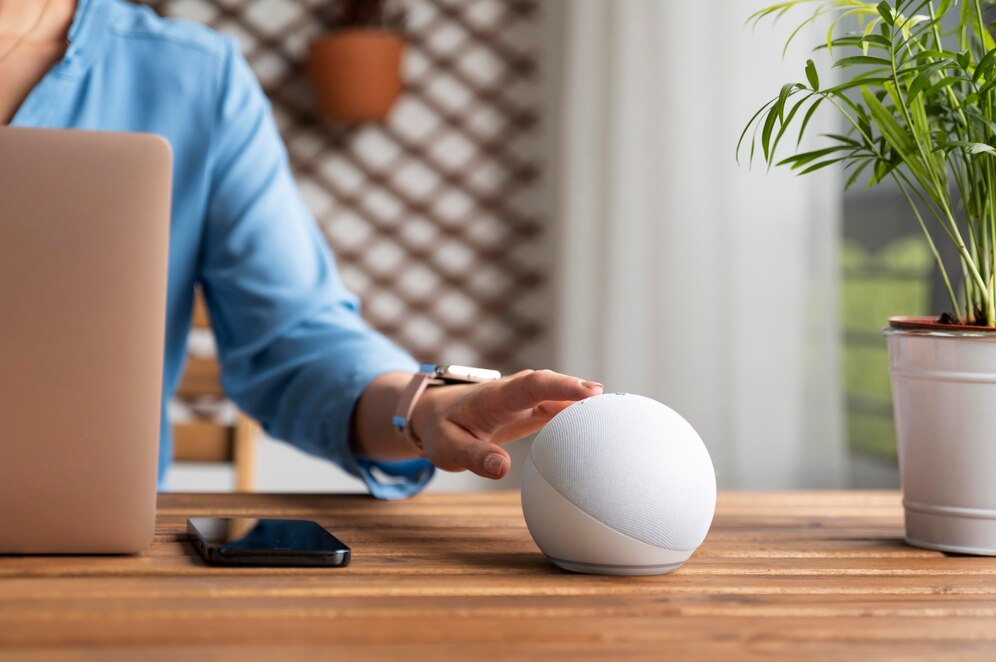
2. Siemens, Germany
Known for its industrial IoT solutions, Siemens offers a wide range of products and services in sectors like manufacturing, energy, and transportation, focusing on digitalization and automation.
- Inception and Early Foundations: Founded in 1847 by Werner von Siemens, Siemens began as a telegraph company and swiftly expanded into electrical engineering, becoming a global conglomerate in technology and engineering. Its evolution into the IoT landscape stems from its continuous innovation and adaptation to technological advancements, positioning it among pioneering IoT companies.
- Industrial IoT Solutions and Digitalization: Siemens’ core focus in the IoT domain revolves around industrial applications. Leveraging its expertise in automation and engineering, Siemens provides comprehensive IoT solutions for industries such as manufacturing, energy, transportation, and healthcare, distinguishing itself among IoT companies. Their commitment to digitalization has been a driving force behind their IoT initiatives.
- MindSphere Platform, Driving Connectivity: Siemens’ flagship IoT platform, MindSphere, serves as a bridge between the physical and digital worlds among IoT companies. It enables the collection, analysis, and utilization of data from connected devices, facilitating predictive maintenance, optimizing operations, and fostering innovation across industries.
- Industrial Automation and Connectivity: Siemens’ innovations in industrial automation, including its Industrial Edge and TIA (Totally Integrated Automation) portfolio, have revolutionized manufacturing processes among leading IoT companies. Integrating IoT technologies with automation has led to increased efficiency, reduced downtime, and enhanced production capabilities for factories worldwide.
- Impact on Industries and Transformation: Siemens’ IoT solutions have had a transformative impact on various industries among IoT companies. In manufacturing, IoT-powered automation has enabled the concept of Industry 4.0, leading to smart factories capable of self-optimization. Similarly, in energy and transportation, IoT applications have improved efficiency, safety, and sustainability, setting Siemens apart from other IoT companies.
- Continued Innovation and Future Prospects: Siemens’ commitment to innovation in IoT is evident through ongoing research and development among IoT companies. The company continually explores new avenues for IoT applications, aiming to further enhance connectivity, automation, and data-driven decision-making in industrial settings, reinforcing its position among leading IoT companies.
Suggested article to read: Smart Construction: Top IoT Applications
3. Huawei, China
Renowned for its IoT solutions, Huawei’s offerings span various sectors, including smart cities, telecommunications, and connected devices, leveraging their expertise in networking and telecommunications infrastructure.
- Inception and Early Growth: Founded in 1987 by Ren Zhengfei, Huawei initially focused on manufacturing phone switches before expanding into telecommunications equipment and devices. Over time, Huawei evolved into a global technology giant, deeply entrenched in the IoT landscape among pioneering IoT companies.
- IoT Integration and Strategic Focus: Huawei’s central focus within the IoT realm revolves around interconnected devices, smart cities, and telecommunications. Leveraging its expertise in networking and telecommunications infrastructure, Huawei has played a significant role in advancing IoT connectivity among top IoT companies.
- 5G and IoT Convergence: Huawei’s pivotal contribution to the IoT landscape comes through its involvement in 5G technology among leading IoT companies. As a leading provider of 5G infrastructure, Huawei’s advancements have facilitated the convergence of 5G networks with IoT, enabling faster and more reliable connectivity for a multitude of devices among IoT companies.
- Smart Cities and IoT Ecosystem: Huawei’s IoT initiatives extend to smart city solutions, integrating various IoT devices and sensors to enhance urban management and efficiency among IoT companies. Their IoT ecosystem includes solutions for smart transportation, energy management, public safety, and environmental monitoring, distinguishing Huawei from other IoT companies.
- Flagship IoT Products and Services: The company’s IoT portfolio includes products like Huawei OceanConnect, an IoT platform offering diverse connectivity solutions across industries among top IoT companies. Additionally, their HiLink ecosystem encompasses smart home devices, fostering seamless connectivity and automation in households among IoT companies.
- Impact and Influence: Huawei’s influence in the IoT domain is evident across multiple sectors among IoT companies. Their advancements in 5G and IoT convergence have paved the way for transformative applications in healthcare, manufacturing, agriculture, and beyond, setting Huawei apart from other IoT companies. The integration of IoT with telecommunications infrastructure has accelerated the development of smart cities worldwide among IoT companies.
- Future Outlook and Innovations: Huawei continues to invest in research and development among other IoT companies, focusing on AI-driven IoT solutions and expanding its IoT ecosystem among other IoT companies. As IoT becomes increasingly intertwined with AI and edge computing, Huawei aims to stay at the forefront by pioneering innovative technologies that harness the potential of interconnected devices among top IoT companies.
4. Google, United States
Google’s investments in IoT, including Google Nest, have established its presence in the smart home space, along with its cloud services that support IoT applications.
- Inception and Expansion: Founded in 1998 by Larry Page and Sergey Brin, Google initially emerged as a search engine before diversifying into various tech domains. Its exploration into IoT began as it ventured beyond its core offerings, delving into the interconnected ecosystem.
- IoT Integration and Strategic Focus: Google’s primary emphasis within the IoT landscape revolves around smart home devices, connectivity solutions, and cloud-based IoT services. Leveraging its expertise in software and cloud computing, Google aimed to establish a seamlessly connected environment for users.
- Nest and Smart Home Integration: Google’s acquisition of Nest Labs in 2014 marked its entry into smart home technology. The Nest brand offers a range of IoT-enabled devices like smart thermostats, cameras, and smoke detectors. These products integrate with Google Assistant, creating a cohesive smart home experience.
- Cloud-Based IoT Solutions: Google Cloud IoT Core serves as a pivotal platform for IoT solutions, providing secure and scalable infrastructure for connecting, managing, and ingesting data from globally dispersed devices. This platform empowers businesses to harness IoT for various applications, from industry-specific solutions to innovative consumer products.
- Industrial Applications and Innovations: Beyond the smart home sector, Google’s IoT initiatives extend to industrial applications. Through partnerships and its cloud services, Google supports IoT deployments in sectors like manufacturing, healthcare, and transportation, offering solutions for data analytics and machine learning.
- Impact and Influence: Google’s influence in the IoT landscape resonates across smart homes and industrial sectors. Its Nest products have reshaped home automation, while its cloud-based IoT solutions have empowered businesses to leverage data-driven insights for enhanced efficiency and innovation.
- Future Outlook and Innovations: Google continues to invest in advancing IoT capabilities, emphasizing AI-driven IoT applications and expanding its ecosystem. With AI integration, edge computing, and further enhancements in connectivity, Google envisions a future where IoT seamlessly integrates into everyday life and industries.
- Significance in the IoT Landscape: Google’s presence in the IoT domain, particularly in smart home technology and cloud-based solutions, positions it as a significant influencer. Its commitment to providing interconnected experiences, from consumer devices to industrial applications, cements Google’s role in shaping the IoT landscape and fostering a more connected world.
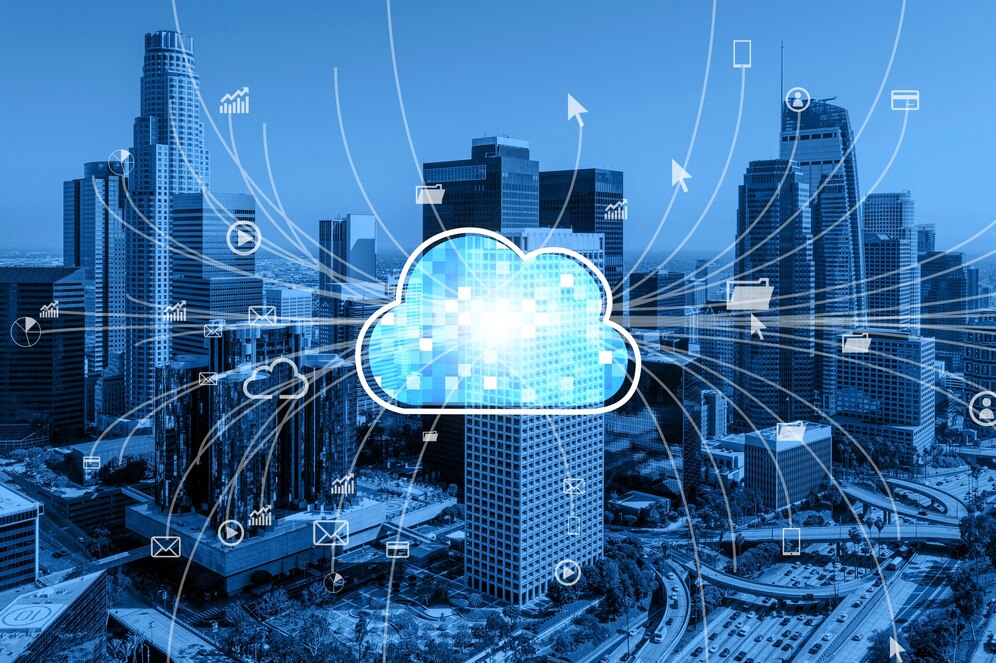
5. Bosch, Germany
With a focus on industrial IoT applications, Bosch provides solutions for smart factories, connected mobility, and smart homes, offering a wide range of sensors and software.
- Founding and Evolution: Established in 1886 by Robert Bosch, the company initially concentrated on automotive components before diversifying into various sectors, becoming a global technology and engineering leader. Bosch’s progression into the IoT landscape traces back to its consistent innovation and adaptability to technological advancements, marking its presence among leading IoT companies.
- IoT Integration and Strategic Focus: Bosch’s core emphasis within the IoT domain centers on industrial applications and smart solutions for daily life. Leveraging expertise in engineering and manufacturing, Bosch emerges as a pivotal player in providing IoT solutions across diverse sectors among top IoT companies.
- Industrial IoT Solutions and Connectivity: Bosch’s forte lies in industrial IoT solutions, offering a broad spectrum of IoT-enabled products and services for manufacturing, automotive, energy, and smart city applications among top IoT companies. Its array includes sensors, software, and services facilitating efficient data collection, analysis, and implementation.
- Smart Home and Consumer Products: Beyond industrial sectors, Bosch delves into consumer-focused IoT applications among leading IoT companies. Its smart home devices encompass connected appliances, security systems, and energy-efficient solutions, augmenting convenience and sustainability for consumers among top IoT companies.
- Flagship IoT Products and Services: Bosch’s IoT portfolio features the Bosch IoT Suite, an open-source platform providing scalable and flexible solutions for IoT applications across industries among leading IoT companies. Additionally, Bosch offers IoT-enabled tools and software for predictive maintenance and automation in manufacturing among top IoT companies.
- Impact and Influence: Bosch’s IoT solutions catalyze transformative change in industries by streamlining processes, enhancing connectivity, and enabling data-driven decision-making among top IoT companies. In manufacturing, their IoT applications enable predictive maintenance, reducing downtime and improving efficiency among leading IoT companies.
- Continued Innovation and Future Prospects: Bosch channels resources into research and development, advancing IoT capabilities among leading IoT companies. Their focus on AI integration, edge computing, and cybersecurity in IoT underscores their commitment to pioneering technological advancements.
6. Cisco, United States
Cisco’s networking expertise extends into IoT with solutions for connected devices and industrial applications, emphasizing secure connectivity and data management.
- Founding and Evolution: Cisco, established in 1984 by Leonard Bosack and Sandy Lerner, initially focused on networking technology. Over time, it evolved into a global leader in networking hardware, software, and services, playing a pivotal role in shaping the Internet and, subsequently, the Internet of Things (IoT).
- IoT Integration and Strategic Focus: Cisco’s fundamental focus within the IoT landscape revolves around providing robust networking infrastructure and solutions. Leveraging its expertise in networking, Cisco aims to enable seamless connectivity and data transfer among IoT devices across various industries.
- IoT Networking Infrastructure: Cisco’s IoT initiatives predominantly revolve around networking solutions. Their offerings include industrial routers, switches, and IoT-specific networking technologies that facilitate the seamless connection of devices in various IoT ecosystems.
- IoT Platforms and Analytics: Cisco’s IoT platform, Cisco Kinetic, serves as a foundational tool for managing IoT devices, data processing, and analytics. It enables organizations to extract actionable insights from vast amounts of IoT-generated data, enhancing decision-making and operational efficiency.
- Industrial Applications and Innovations: Cisco’s IoT solutions extend into industrial applications, focusing on sectors like manufacturing, transportation, and utilities. Their innovations in IoT-enabled systems have facilitated the development of smart factories and connected infrastructure, optimizing operations and enabling predictive maintenance.
- Impact and Influence: Cisco’s influence in the IoT landscape is evident through its networking infrastructure and solutions, providing the backbone for connected devices globally. Their contributions have enabled secure and reliable connectivity, essential for the functioning of IoT ecosystems across industries.
- Continued Innovation and Future Prospects: Cisco remains committed to advancing IoT capabilities. They continue to invest in research and development, focusing on enhancing security, scalability, and the integration of AI and machine learning into IoT networks.
Suggested article to read: The Ultimate Guide to IoT Sensor
7. IBM, United States
IBM’s Watson IoT platform offers robust solutions for industries such as healthcare, manufacturing, and logistics, leveraging AI and analytics for data-driven insights.
- Founding and Early Growth: IBM, founded in 1911 as the Computing-Tabulating-Recording Company (CTR) before becoming International Business Machines Corporation (IBM) in 1924, began as a manufacturer of tabulating machines. Over time, it evolved into a global technology and consulting firm, continually innovating across various domains.
- IoT Integration and Strategic Focus: IBM’s primary focus within the IoT landscape centers on providing comprehensive IoT solutions and services. Leveraging its expertise in data analytics, cloud computing, and artificial intelligence (AI), IBM aims to harness the potential of connected devices to drive innovation across industries.
- Watson IoT Platform and Analytics: At the core of IBM’s IoT initiatives lies the Watson IoT platform. This platform enables organizations to connect and manage IoT devices, collect and analyze data, and derive actionable insights using AI-driven analytics. It supports industries such as manufacturing, healthcare, and utilities, facilitating predictive maintenance and operational optimization.
- Edge Computing and IoT Security: IBM’s innovations in edge computing complement its IoT solutions, enabling real-time data processing closer to the source. Additionally, the company emphasizes IoT security, offering robust solutions to safeguard connected devices and data from cyber threats, ensuring the integrity of IoT ecosystems.
- Industrial Applications and Transformative Impact: IBM’s IoT solutions have had a transformative impact across industries. In manufacturing, their predictive maintenance solutions have minimized downtime and optimized equipment performance. In healthcare, IoT-enabled systems have improved patient care through remote monitoring and personalized treatments.
- Continued Innovation and Future Prospects: IBM continues to invest in advancing IoT capabilities, focusing on AI integration, edge computing, and blockchain technologies. The company aims to enhance the scalability, security, and efficiency of IoT systems, anticipating a future where interconnected devices drive new possibilities.
8. Microsoft, United States
Azure IoT Suite and related services position Microsoft as a key player in providing cloud-based IoT solutions across industries.
- Founding and Early Growth: Founded in 1975 by Bill Gates and Paul Allen, Microsoft initially gained prominence through its operating systems, notably MS-DOS and later Windows. Its evolution into a technology conglomerate encompasses software, hardware, cloud services, and a prominent role in the Internet of Things (IoT).
- IoT Integration and Strategic Focus: Microsoft’s central focus within the IoT landscape revolves around providing comprehensive cloud-based solutions and services. Leveraging its expertise in software development and cloud computing, Microsoft aims to enable seamless integration and management of IoT devices and data.
- Azure IoT Suite and Edge Computing: At the core of Microsoft’s IoT initiatives lies the Azure IoT Suite. This platform facilitates device connectivity, data processing, and analytics, enabling businesses to derive meaningful insights from IoT-generated data. Additionally, Microsoft emphasizes edge computing to enable real-time processing at the device level.
- IoT Security and AI Integration: Microsoft prioritizes IoT security, offering robust solutions to safeguard connected devices and networks from cyber threats. Moreover, the integration of artificial intelligence (AI) and machine learning within IoT ecosystems enhances data analytics, enabling predictive maintenance and smarter decision-making.
- Industrial Applications and Transformative Impact: Microsoft’s IoT solutions have had a transformative impact across industries. In manufacturing, their IoT applications enable predictive maintenance, reducing downtime and optimizing operational efficiency. In healthcare, IoT-enabled systems have improved patient monitoring and personalized healthcare services.
- Continued Innovation and Future Prospects: Microsoft remains committed to advancing IoT capabilities, focusing on AI-driven IoT applications, enhanced security, and further integration of edge computing. The company envisions a future where interconnected devices, powered by AI and cloud services, revolutionize industries and daily life.
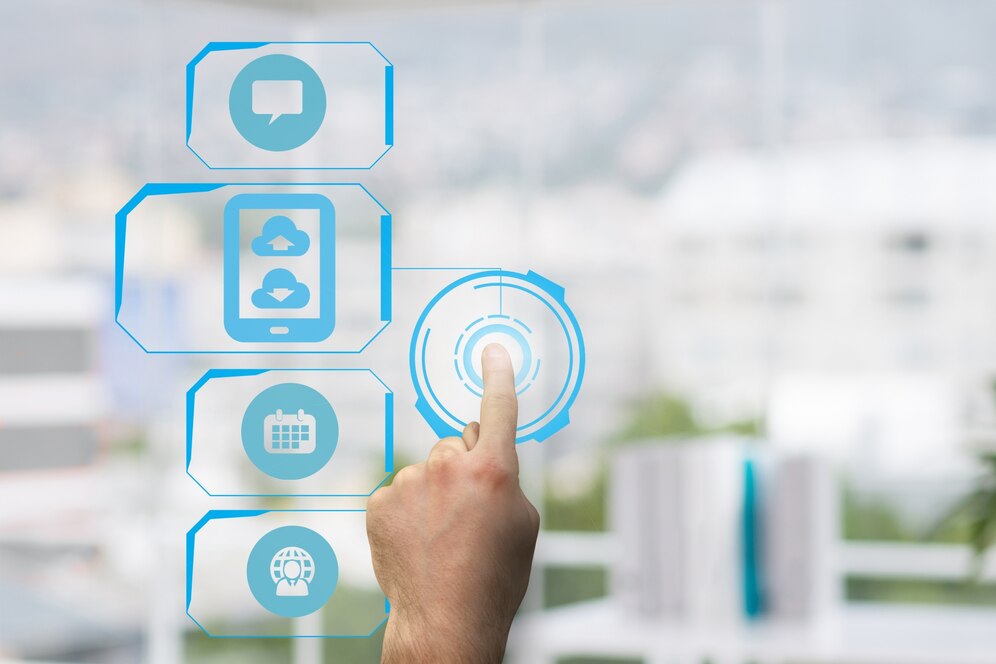
9. Ericsson, Sweden
Focused on IoT for telecommunications and connectivity, Ericsson plays a significant role in enabling 5G networks and IoT solutions for smart cities and industries.
- Founding and Early Development: Founded in 1876 by Lars Magnus Ericsson, the company initially focused on telecommunications equipment. Over the years, it evolved into a global leader in networking and telecommunications, playing a significant role in advancing communication technologies among top IoT companies.
- IoT Integration and Strategic Focus: Ericsson’s primary focus within the IoT landscape revolves around providing robust networking infrastructure and solutions among top IoT companies. Leveraging its extensive experience in telecommunications, Ericsson aims to facilitate seamless connectivity among IoT devices across various industries, distinguishing itself from other IoT companies.
- IoT Networking Infrastructure: Ericsson’s IoT initiatives predominantly revolve around networking solutions among top IoT companies. The company offers a range of IoT-specific networking technologies, including cellular IoT solutions such as NB-IoT (Narrowband IoT) and LTE-M (Long-Term Evolution for Machines), enabling reliable and scalable connectivity for diverse IoT applications among top IoT companies.
- IoT Platforms and Services: Ericsson provides IoT platforms and services aimed at enabling connectivity, managing devices, and deriving insights from IoT-generated data among top IoT companies.
- Industrial Applications and Transformative Impact: Ericsson’s IoT solutions have had a transformative impact across industries among top IoT companies. In sectors like manufacturing and utilities, their solutions enable efficient asset monitoring, predictive maintenance, and optimization of operations among leading companies. In smart cities, Ericsson’s IoT technologies support solutions for traffic management, environmental monitoring, and public safety among other IoT companies.
- Continued Innovation and Future Prospects: Ericsson continues to invest in advancing IoT capabilities among top Companies that specialize in the Internet of Things (IoT)., focusing on further development of 5G-enabled IoT solutions, edge computing, and IoT security among other IoT companies. The company envisions a future where ultra-reliable and low-latency connectivity is pivotal in empowering various IoT applications among leading IoT companies.
Suggested article to read: Top IoT Applications
10. ABB, Switzerland
ABB specializes in industrial automation and robotics, offering IoT solutions for smart factories and power grids.
- Founding and Early Growth: Founded in 1883 by Charles Eugene Lancelot Brown and Walter Boveri, ABB (ASEA Brown Boveri) originated from the merger of two pioneering electrical companies. ABB quickly established itself as a global leader in power and automation technologies.
- IoT Integration and Strategic Focus: ABB’s central focus within the IoT landscape revolves around providing innovative solutions for industrial automation and power systems. Leveraging its expertise in electrical engineering and automation, ABB aims to drive efficiency and connectivity through IoT-enabled technologies.
- Industrial IoT Solutions: ABB’s IoT initiatives predominantly focus on industrial applications. The company offers a comprehensive suite of IoT-enabled solutions for smart factories, power grids, and process automation. These solutions leverage IoT technologies for predictive maintenance, asset optimization, and operational efficiency.
- ABB Ability™ Platform: At the core of ABB’s IoT initiatives lies the ABB Ability™ platform. This platform integrates various IoT devices, data analytics, and AI-driven capabilities to enable smarter decision-making and operational excellence across industries, including manufacturing, utilities, and transportation.
- Innovations in Industrial Automation: ABB’s innovations in IoT-driven industrial automation have had a transformative impact. Their solutions enable remote monitoring, autonomous operations, and real-time data analytics, empowering industries to optimize performance and drive innovation.
- Continued Innovation and Future Prospects: ABB continues to invest in advancing IoT capabilities, emphasizing AI integration, edge computing, and cybersecurity in its offerings. The company envisions a future where interconnected devices and AI-driven insights revolutionize industries, driving productivity and sustainability.
11. PTC, United States
PTC’s ThingWorx platform provides IoT solutions for industrial applications, enabling companies to quickly create and deploy IoT applications.
Founding and Evolution: Founded in 1985, PTC initially focused on computer-aided design (CAD) software. Over time, it expanded its portfolio to include product lifecycle management (PLM) software and later pivoted towards the Internet of Things, transforming into a provider of IoT and augmented reality (AR) solutions for businesses.
IoT Integration and Strategic Focus: PTC’s fundamental focus within the IoT landscape revolves around providing comprehensive IoT solutions for businesses, particularly in the realm of industrial IoT (IIoT). Leveraging its expertise in software development and product lifecycle management, PTC aims to facilitate the digital transformation of industries through IoT technologies.
ThingWorx Platform and IoT Solutions: At the core of PTC’s IoT initiatives lies the ThingWorx platform. This platform enables companies to connect, manage, and analyze data from IoT devices and applications. ThingWorx serves as a foundation for building and deploying IoT solutions across various industries, enabling capabilities such as remote monitoring, predictive maintenance, and data-driven insights.
Augmented Reality and IoT Integration: PTC’s involvement in IoT also extends to augmented reality (AR) applications. By integrating IoT data into AR experiences, PTC provides solutions that enable technicians and workers to visualize and interact with IoT data in real-time, enhancing maintenance and troubleshooting processes.
Industrial Applications and Transformative Impact: PTC’s IoT solutions have had a transformative impact across industries, particularly in the manufacturing, healthcare, and automotive sectors. Its IoT applications have facilitated predictive maintenance, improved operational efficiency, and enhanced product development and customer experiences.
Continued Innovation and Future Prospects: PTC continues to invest in advancing its IoT capabilities, emphasizing AI integration, and edge computing, and further enhancing its ThingWorx platform. The company envisions a future where interconnected devices, combined with AI and AR technologies, drive innovation and efficiency in industrial settings and beyond.
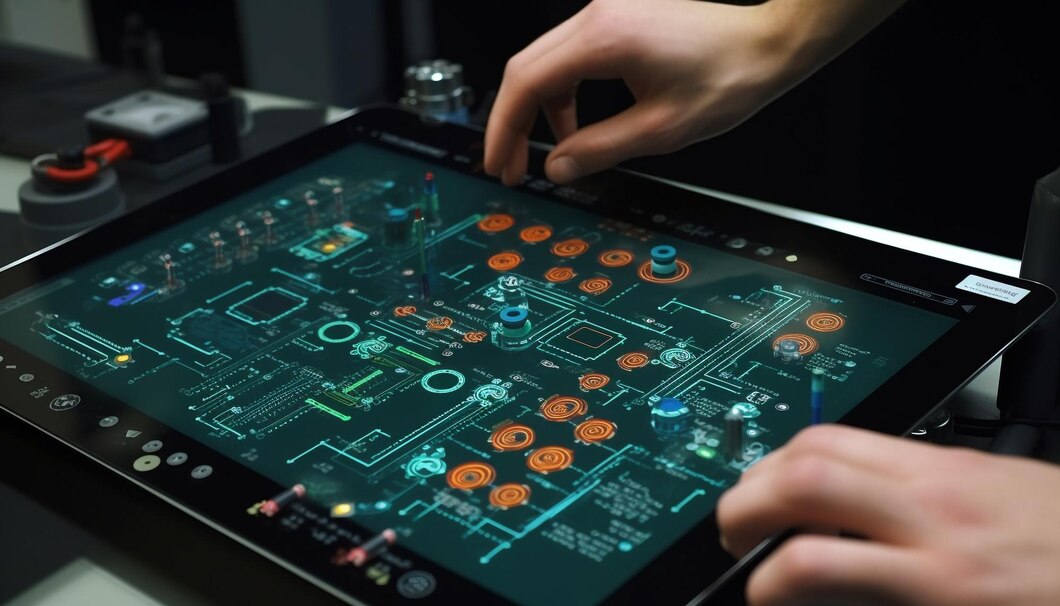
12. Telefonica, Spain
With a global presence, Telefonica offers IoT connectivity solutions for various industries, including automotive, healthcare, and utilities.
- Founding and Growth: Founded in 1924, Telefónica started as a public telecommunications service provider in Spain. Over the years, it expanded its operations internationally and diversified its services to include fixed and mobile telephony, broadband, digital TV, and more recently, IoT solutions.
- IoT Integration and Strategic Focus: Telefónica’s primary focus within the IoT landscape revolves around offering comprehensive IoT connectivity and solutions. Leveraging its extensive telecommunications infrastructure and expertise, Telefónica aims to enable seamless connectivity and innovative IoT applications for various industries.
- IoT Connectivity Services: Telefónica provides IoT connectivity services, including SIM cards and communication modules designed specifically for IoT devices. This enables devices to connect to Telefónica’s network, allowing for the transfer of data between IoT devices and backend systems.
- IoT Platform and Solutions: The company offers an IoT platform that allows businesses to manage and analyze data from connected devices efficiently. This platform facilitates the development of IoT applications and solutions across sectors such as transportation, healthcare, utilities, and smart cities.
- Industrial Applications and Impact: Telefónica’s IoT solutions have made a significant impact across industries by enabling businesses to leverage IoT technology for operational efficiency, predictive maintenance, asset tracking, and data-driven decision-making.
- Continued Innovation and Future Prospects: Telefónica continues to invest in advancing its IoT capabilities, focusing on expanding its IoT ecosystem, enhancing security measures for IoT devices, and exploring new applications for IoT in various industries. The company aims to foster a future where IoT plays a pivotal role in driving innovation and efficiency across sectors.
Suggested article to read: Best IoT Consulting Services Providers
13. Sony, Japan
Sony’s IoT initiatives cover areas like smart wearables, sensor technology, and IoT platforms for diverse applications.
- Founding and Evolution: Founded in 1946 by Masaru Ibuka and Akio Morita, Sony initially focused on electronic products. Over time, it expanded into various sectors, including entertainment, gaming, imaging, and more recently, IoT-related devices and solutions.
- IoT Integration and Strategic Focus: Sony’s foray into the IoT landscape involves integrating its expertise in hardware manufacturing, sensor technology, and entertainment into connected devices and IoT applications. The company aims to create IoT-enabled products and services that enhance user experiences and connectivity.
- IoT Devices and Solutions: Sony has developed IoT-enabled products such as sensors, cameras, and smart devices that contribute to the IoT ecosystem. For instance, its sensors are used in various applications, including IoT devices for monitoring, imaging, and data collection.
- Innovations and Impact: Sony’s IoT solutions have made an impact in sectors such as imaging, healthcare, and entertainment. For example, its sensors are used in cameras and imaging devices, enhancing image quality and data capture capabilities.
- Continued Innovation and Future Prospects: Sony continues to invest in IoT-related technologies and solutions, focusing on sensor development, connectivity, and smart devices. The company envisions a future where interconnected devices seamlessly integrate into people’s lives, contributing to entertainment, healthcare, and various other domains.
Conclusion
In the expansive realm of the Internet of Things (IoT), a spectrum of IoT companies, ranging from telecom giants to avant-garde tech innovators and industrial solution providers, collectively chart the course for an interconnected future. Each IoT Company brings forth distinct expertise and a strategic point, marking significant contributions to the IoT’s technological evolution. These enterprises spearhead innovation across industries, embracing elements from strong networking infrastructures to AI-driven analytics, reshaping operational paradigms, connectivity norms, and user engagements.
IoT companies’ unwavering commitment to advancing IoT capabilities stands as a beacon for innovation. They are relentless in their pursuit of redefining traditional norms, visualizing a world where interlinked devices redefine the very fabric of industries. Their collective efforts cement an indispensable role in molding the transformative landscape of IoT, propelling humanity towards an era defined by heightened connectivity, seamless efficiency, and an intricately integrated technological tapestry.
These IoT companies stand as architects of change, revolutionizing conventional methodologies, and envisioning a reality where interconnected devices redefine the scope of possibilities. Their dedication to fostering innovation in IoT technology cements their pivotal role in propelling us toward a more connected, efficient, and technologically enriched future where the boundaries between the physical and digital realms blur, opening doors to unprecedented possibilities.
Suggested articles to read:
Industrial Internet of Things (IIoT)
Top IoT Companies in Denmark (2024)
Resources:
Amazon | Siemens | Huawei | Google | Bosch | Cisco | IBM | Microsoft | Ericsson | ABB | PTC | Telefonica | Sony
For all the pictures: Freepik

